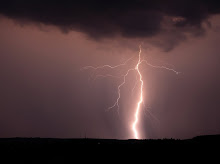 Happy Easter Sunday. This is the day of "He is risen" responses to greetings; the most famous (controversial) recorded miracle in history. Reflecting on this day the image of the glass pictured above came to mind. Not a picture of what today represents for so many people, but as a question I have pondered:
Happy Easter Sunday. This is the day of "He is risen" responses to greetings; the most famous (controversial) recorded miracle in history. Reflecting on this day the image of the glass pictured above came to mind. Not a picture of what today represents for so many people, but as a question I have pondered:How did the disciples and followers of the young rabbi, Jesus of Nazareth, feel the day before, and then the day after that Sunday of Passover?
Saturday and Monday. How did they feel? What were they thinking? How did they see the future for their lives at that very moment in time? If this glass of water was placed in front of them, would they have said "the glass is half empty," or would they have said "the glass is half full?"
We have all heard this expression, been asked it several times and have likely answered it according to that very moment in time. Was the answer correct?
Let's try an experiment:

1. Imagine the following three moments in history.
2. Imagine the situation as it presented itself at that very moment.
3. Imagine that the people have no idea what is getting ready to happen next.
4. Imagine this glass placed in front of them and being asked, "Is the glass half empty or half full?"
5. How do you believe the majority of them would answer:
Half empty or half full?
Scene 1: The Israelites at the shore of the Red Sea (not parted) with the Egyptians (really really ticked off) just behind the wall of flames.

Half empty or half full?
Scene #2: The people filling the World Trade Center on September 10, 2001?

Half empty or half full?
Scene #3: The Disciples in Jerusalem on Saturday of Passover the day after the crucifixion.

Half empty or half full?
Amazing what we feel at "that very moment" in our lives when we do not know what is getting ready to happen next in our lives. Yes?
So, which is the right answer to the glass question? Was the glass (is the glass) half empty or half full? I suggest that we consider that the answer is: "Yes."
It all depends on your perspective or what you choose to believe at that very moment. Yes?
My point for us to ponder: As we reflect upon this amazingly blessed day...as we reflect upon every day we are given through the grace of God's love...that we consider that maybe the issue has nothing to do with the content in the glass (the "stuff" of this world: the issues, the possessions, the politics, etc.). I think the question before us might be all about the glass! The vessel of our individual and collective lives.

All different. Filling. Emptying. Filling. Emptying.
We contain all that we are given, so that we can give all that we contain.
May the blessings contained in this and every moment give us the chance to spill.
He is filling.
Empty in the fullness,
(b)





Appreciate your perspective challenge to flip of the script on our daily take, reminded me of this story... fellow "PRO verbs", if you will...
ReplyDeleteA group of alumni, highly established in their careers,
got together to visit their old university professor. The
conversation soon turned into complaints about stress in
work and life.
Offering his guests coffee, the professor went to the
kitchen and returned with a large pot of coffee and an
assortment of cups - porcelain, plastic, glass, crystal,
some plain-looking, some expensive, and some exquisite -
telling them to help themselves to the coffee.
After all the students had a cup of coffee in hand, the
professor said:
"If you noticed, all the nice looking expensive cups were
taken up, leaving behind the plain and cheap ones. While
it is but normal for you to want only the best for
yourselves, that is the source of your problems and
stress.
"Be assured that the cup itself adds no quality to the
coffee. In most cases, it's just more expensive and in
some cases even hides what we drink. What all of you
really wanted was coffee, not the cup, but you
consciously went for the best cups.and then began eyeing
each other's cups.
"Now consider this: Life is the coffee, and the jobs,
money and position in society are the cups. They are just
tools to hold and contain life, and the type of cup we
have does not define nor change the quality of life we
live. Sometimes, by concentrating only on the cup, we
fail to enjoy the coffee God has provided us."
God brews the coffee, not the cups . . . enjoy your
coffee.